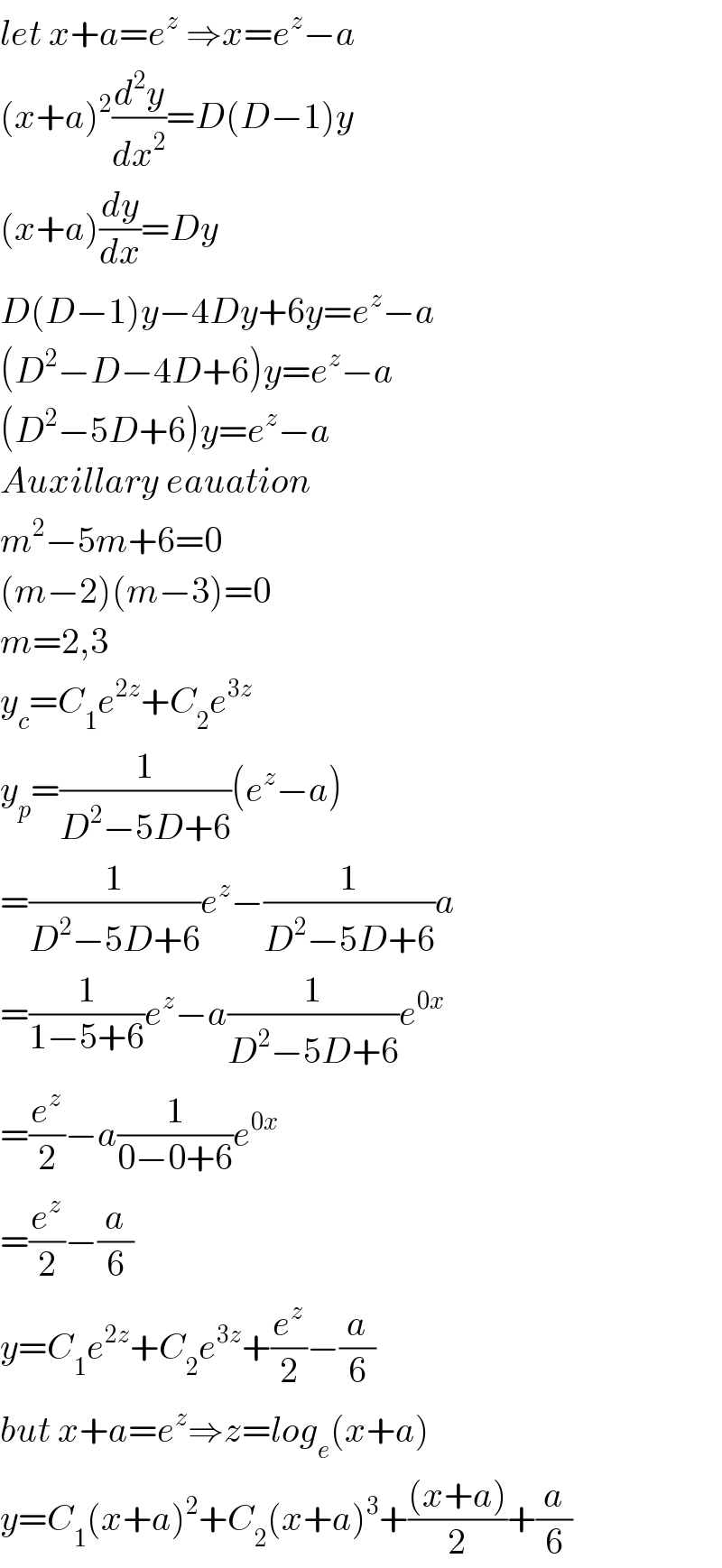
Question and Answers Forum
Question Number 91036 by niroj last updated on 27/Apr/20

Answered by MWSuSon last updated on 27/Apr/20

Commented by peter frank last updated on 27/Apr/20

Commented by peter frank last updated on 27/Apr/20

Commented by niroj last updated on 03/May/20
��
